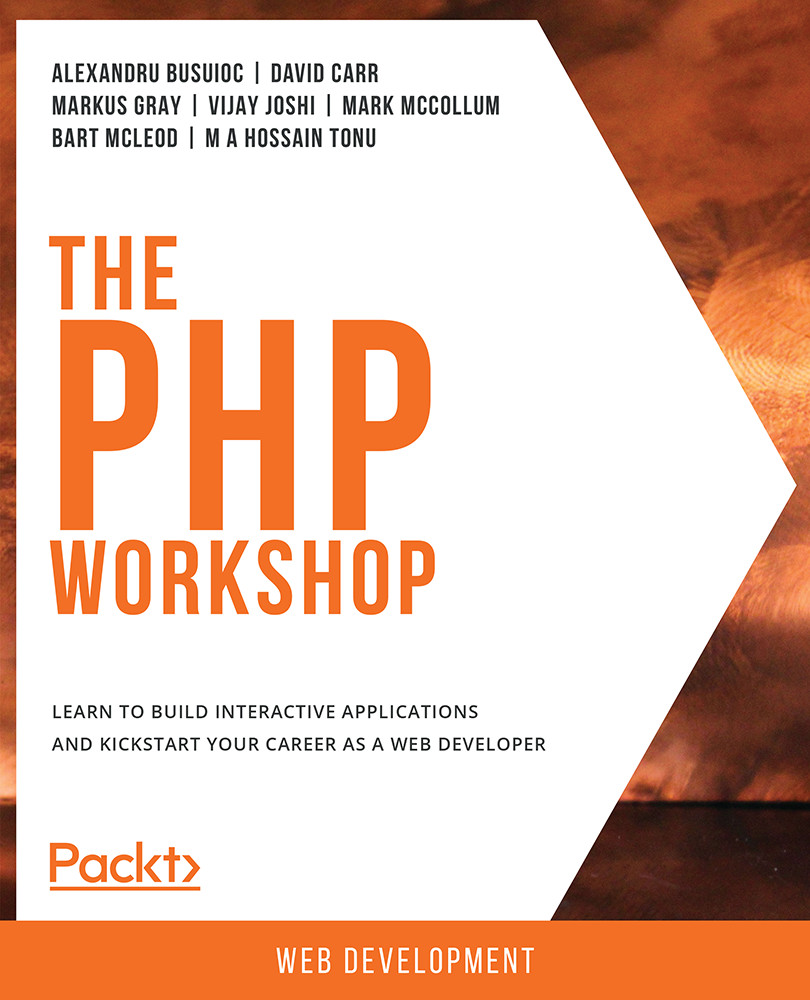-
Book Overview & Buying

-
Table Of Contents

The PHP Workshop
By :

The PHP Workshop
By:
Overview of this book
 Free Chapter
Free Chapter
 Sign In
Start Free Trial
Sign In
Start Free Trial


 Free Chapter
Free Chapter
In the previous chapter, we learned how to use PHP's package manager, Composer, to include third-party packages in your application. By doing so, you saw how to benefit from the open source solutions to problems that have already been solved and drastically reduce the amount of code you must produce and maintain in your own projects.
Web services are a technology that is enabling a lot of innovation in our industry. There are countless web services available on the internet, with some requiring a paid account to access their service and some freely available to the public as long as you don't surpass a rate limit. This is important because it means you don't have to own all the data you use in your app. You can leverage the data and systems others have built and then build on top of them, stringing them together to provide functionality that is unique to your application. PHP is a language built specifically for the web in the age of web APIs. By some...
